Despite having the most complex and costly healthcare infrastructure in the world, the U.S. lags behind many other wealthy nations in numerous population health indicators. Maternal mortality rates are high and the toll of chronic disease and opioid use is chilling. End-of-life care and healthcare in jails and prisons do grave injustices to vulnerable populations and antimicrobial resistance threatens the planet. Health, Medicine & Society brings together doers and thinkers to envision and implement actionable strategies to strengthen health systems and services and confront the challenges.
Media
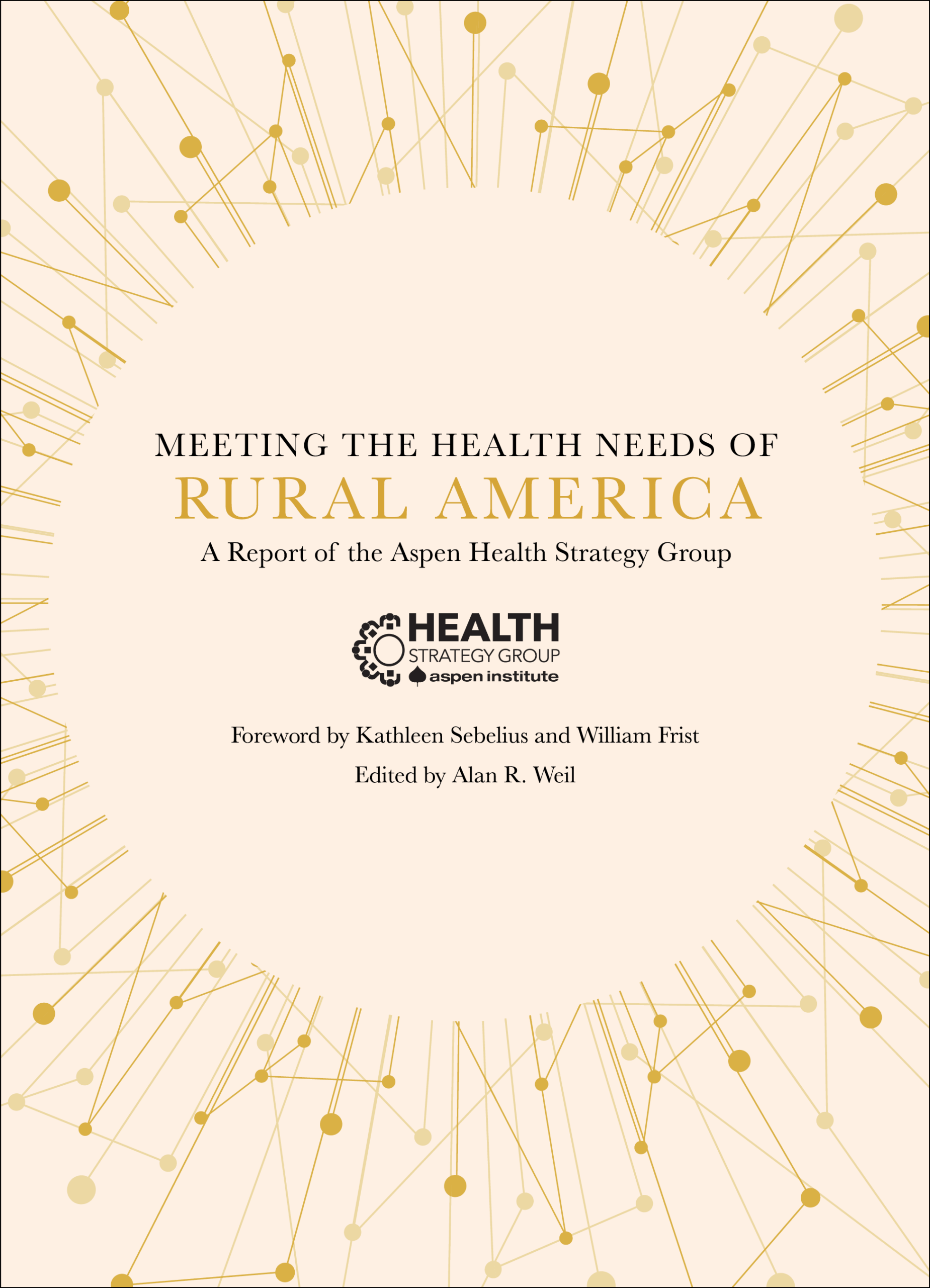
Aspen Health Strategy Group: Meeting the Health Needs of Rural America
Aspen Health Strategy Group
February 10, 2026
A new report released by the Aspen Health Strategy Group identifies opportunities for health sector leaders to narrow the health gap between the 50 million Americans who live in rural areas and those who do not. The report is unsparing in its depiction of health disparities in rural areas, which include higher mortality rates, a greater prevalence of chronic conditions and disability, and more infectious diseases. Rural residents are also significantly more likely to report problems affording their medical bills and more likely to carry medical debt when compared to urban residents.
Public Health Grand Rounds: Dr. Mehmet Oz at the Aspen Institute
Public Health Grand Rounds
October 6, 2025
Public Health Grand Rounds at the Aspen Institute hosted Dr. Mehmet Oz, Administrator of the Centers for Medicare & Medicaid Services, for a conversation on CMS under Dr. Oz’s leadership. Interviewed by Bertha Coombs, CNBC Senior Health Care Reporter, Dr. Oz shared his vision and priorities for CMS as well as the agency’s role in improving healthcare access, quality, and outcomes across the country.
Aspen Ideas Health: Artificial Intelligence Revolution
Aspen Ideas Health 2025
June 24, 2025
AI is penetrating every corner of medicine. In clinical care, it is being schooled to analyze scans and tissue samples, predict disease risks, help design personalized treatment plans, and even offer mental health support. In research, AI may speed drug discovery and inform clinical trial design. It can also increase operational efficiencies by streamlining scheduling, coding, claims processing, and electronic health record management. But the technology isn’t perfect—at least, not yet—and legal, regulatory, and ethical concerns, including algorithmic bias, remain to be addressed.
Aspen Ideas Health: In Conversation with NIH Director Jay Bhattacharya
Aspen Ideas Health 2025
June 24, 2025
In one of his earliest public appearances since taking the leadership post at the National Institutes of Health, Dr. Jay Bhattacharya outlines his vision for what he has called “the crown jewel of American biomedical sciences.” His top priorities include improving population health, fostering innovation, restoring public trust in science, and ensuring the reproducibility of NIH-funded research results.
Aspen Ideas Health: Rethinking Aging
Aspen Ideas Health 2025
June 24, 2025
Everyone deserves the opportunity to live the longest, healthiest life possible. New research demonstrates that we can not only extend our lifespan, but also our health span — the years we spend in good health. Medical care, lifestyle choices, and social connections all matter, but thriving in life’s later years demands more than individual effort; it also requires thoughtful investments in our communities. That means reshaping the narrative about what it means to grow old and broadening access to support systems that respect autonomy, celebrate accumulated wisdom, enhance financial security, and encourage lifelong learning.
Public Health Grand Rounds: Charting a Path Forward: CDC’s Team Approach to Protecting Health
Public Health Grand Rounds
October 25, 2023
Public Health Grand Rounds at the Aspen Institute presents Dr. Mandy Cohen, Director for the Centers for Disease Control and Prevention (CDC), as she maps out her vision for the future of the CDC and how she plans to integrate and build on best practices.
Aspen Ideas Health: Surgeon General Vivek Murthy Speaks Truth on Public Health, Mental Health, and Our Well-Being
Aspen Ideas Health 2023
June 24, 2023
As the nation’s top doctor, US Surgeon General Vivek Murthy helps to advance the health and well-being of all Americans. He has described the growing youth mental health crisis in America as the “defining public health crisis of our time” and warned that social media carries a “profound risk of harm to the mental health of children and adolescents.” Murthy has also highlighted the employers’ role in supporting mental health for their workers and called attention to health worker burnout. In the recent Surgeon General’s Advisory on the Epidemic of Loneliness and Isolation in America, he highlighted the vital need to heal from the pandemic through community and connection.
Aspen Ideas Health: PEPFAR: Two Decades of Global Progress Against HIV
Aspen Ideas Health 2023
June 23, 2023
Twenty years ago, under the administration of George W. Bush, the US government established the President’s Emergency Plan for AIDS Relief (PEPFAR). With allocations exceeding $110 billion, it represents the largest investment ever made by any nation in a single disease. The resulting package of testing, prevention, and treatment is credited with saving more than 25 million lives. Learn how PEPFAR happened, and why continued commitment is vital, from two men who made the initiative possible—long-time NIAID head Tony Fauci, who conceptualized the strategy, and Bill Frist, former US Senate majority leader (R-TN), who helped move authorizing legislation through Congress.
Aspen Ideas Health: In the Bubble with Medicare Director Meena Seshamani
Aspen Ideas Health 2023
June 23, 2023
Medicare covers 65 million people, pays out $829 billion in annual benefits, and accounts for 21% of total national health spending. An aging population, increasing costs, and coverage expansions all raise questions about the long-term financing of this hugely popular national insurance program. The availability of sophisticated home-based medical interventions, a new law lowering the price of insulin and other essential drugs, and the growth of Medicare Advantage add to the agency’s administrative and policy responsibilities. In a live “In the Bubble” podcast, Meena Seshamani, director of the Center for Medicare, talks strategy with Andy Slavitt.
Aspen Ideas Health: Behind the Scenes with HHS Secretary Xavier Becerra
Aspen Ideas Health 2023
June 22, 2023
Few health and social welfare policy issues escape the oversight of the US Department of Health and Human Services, second in size only to the Department of Defense. Prescription drug costs, access to reproductive health services, national and domestic public health threats like COVID-19, and the epidemic of loneliness are all within its purview. As it implements the health provisions of the historic Inflation Reduction Act, the department is also confronting the nation’s mental health crisis and tackling health disparities. Hear directly from HHS Secretary Xavier Becerra about what it is like to lead at this crucial moment.
Aspen Ideas Health: FDA Commissioner Robert Califf on Regulating 20% of US Economy
Aspen Ideas Health 2023
June 22, 2023
When he was sworn in as 25th commissioner of the US Food and Drug Administration in February 2022, Robert Califf knew the assignment would be intense because he had held the post before. With its oversight of more than $2.7 trillion in medical products, food, and tobacco—one-fifth of the nation’s economy—the FDA is always under pressure. Today, artificial intelligence, breakthrough pharmaceuticals, misinformation, vaping, the nicotine content of cigarettes, and critical drug shortages, including a scarcity of life-extending chemotherapies, are only a sampling of the issues that demand strategic decision-making and knowledge at the frontiers of science from the FDA.
Aspen Ideas Health: Three HHS Secretaries in Conversation
Aspen Ideas Health 2023
June 21, 2023
With an annual budget of $1.65 trillion, the vast US Department of Health and Human Services oversees Medicare, Medicaid, the National Institutes of Health, the Food and Drug Administration, the Centers for Disease Control and Prevention, and much else. Three Secretaries, past and present from both sides of the aisle, share their experiences about leading the agency and exchange ideas about making tough decisions, setting priorities, and dealing with Congress, the White House, and the American public—all while promoting scientific research, providing access to health insurance, addressing public health emergencies, funding programs to combat poverty and hunger, and creating workforce training opportunities. Spoiler alert: Navigating all that isn’t easy!
Video: Women’s Health Policy and Practice: Realizing the Promise
Health, Medicine & Society
April 27, 2023
This unique half-day program explored the burgeoning field of women’s health – where we have been, where we need to go, the policies that will help get us there, and what the American public thinks about it all. Join experts from both government and the private sector for special presentations and moderated conversations with Andrea Mitchell of NBC News and Jackie Judd, former correspondent with ABC News and the PBS NewsHour.
Aspen Ideas Health: HHS Secretaries: Looking Ahead, Looking Back
Aspen Ideas Health 2022
June 27, 2022
Two former US Department of Health and Human Services (HHS) Secretaries, Alex Azar and Donna Shalala, talk about their proudest achievements, the hardest decisions they had to make, how they oversee a $1.8 trillion budget, and the advice they have for their successors. Learn what it’s like to be in the hot seat every day, grappling with Medicaid expansion, disease outbreaks, health at the border, Congressional pressure, food safety, medical research priorities, and children’s wellbeing—sometimes all at once.
Aspen Ideas Health: Reducing the Food Waste and Feeding the Hungry
Aspen Ideas Health 2022
June 25, 2022
Almost 110 billion pounds of food, roughly 40% of the nation’s total food supply, go to waste in the United States every year, yet more than 38 million Americans lack reliable access to affordable, nutritious meals. LaToya Meaders, co-founder and CEO of Collective Fare and Collective Food Works, and Matt Jozwiak, founder and CEO of Rethink Food, talk about how to create a win-win-win that bridges the gap between waste and hunger while supporting struggling local restaurants that are often community mainstays. Corby Kummer, executive director of the Aspen Institute’s Food and Society Program, moderates the conversation.
Aspen Ideas Health: Can Medicine Become More Equitable?
Aspen Ideas Health 2022
June 24, 2022
Two decades after the Institute of Medicine called out structural racism in its landmark study Unequal Treatment, the devastating toll remains apparent in the uneven risks associated with COVID, diabetes, asthma, cancer, stroke, and pregnancy. Pain medicines are still prescribed more reluctantly to Black patients and their heart attacks are treated less aggressively. Linda Villarosa, contributing writer to the New York Times Magazine, Paula Johnson, president of Wellesley College, and Carolina Reyes, maternal-fetal medicine specialist at UC Davis School of Medicine, discuss the opportunities to reckon with the harms of what has been called “medical apartheid.” Nicholas St. Fleur, STAT reporter and host of the “Color Code” podcast, moderates the conversation.
Aspen Ideas Health: Chiquita Brooks-LaSure, CMS Administrator: Covering Healthcare for 150 Million Americans
Aspen Ideas Health 2022
June 23, 2022
Through Medicare, Medicaid, the Children’s Insurance Program, and the Center for Consumer Information and Insurance Oversight, the Centers for Medicare and Medicaid Services (CMS) provides or oversees health coverage for more than 150 million people across the country. With $1.5 trillion in annual healthcare spending, CMS plays a key role in shaping the direction of the US healthcare system, while serving as the primary source of coverage for the elderly, people with disabilities, low-income populations, and those needing long-term care. How is CMS building health equity into its programs and the healthcare system more broadly? Are public health insurance programs sustainable? Should they be expanded?
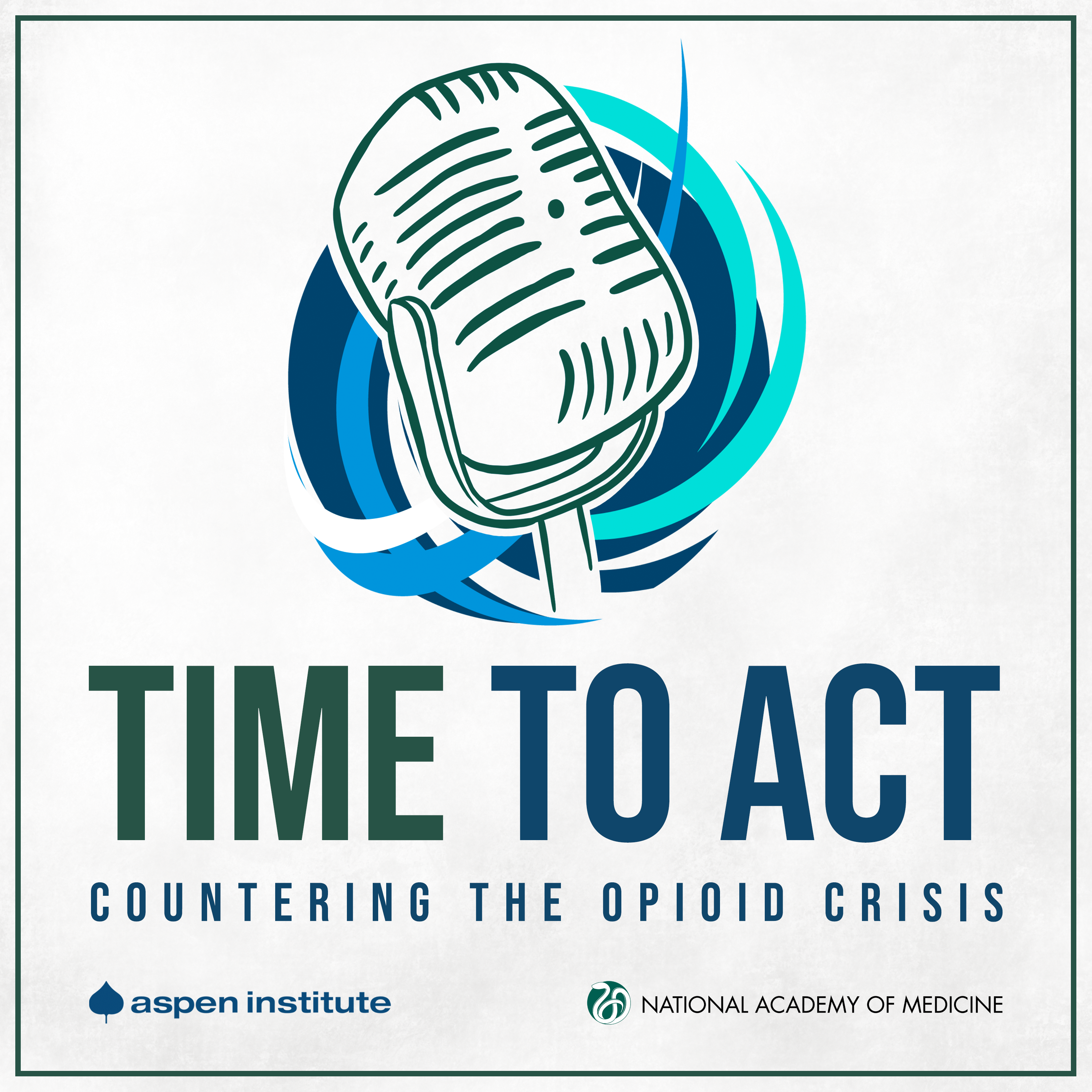
Podcast: Time to Act: Countering the Opioid Crisis
National Academy of Medicine Action Collaborative on Countering the US Opioid Epidemic
April 28, 2021
In a series of podcasts hosted by HMS executive director Ruth Katz, experts discuss various aspects of the opioid crisis, the response, and the research that is being conducted to better understand the disease of addiction and the management of chronic pain.
Publications
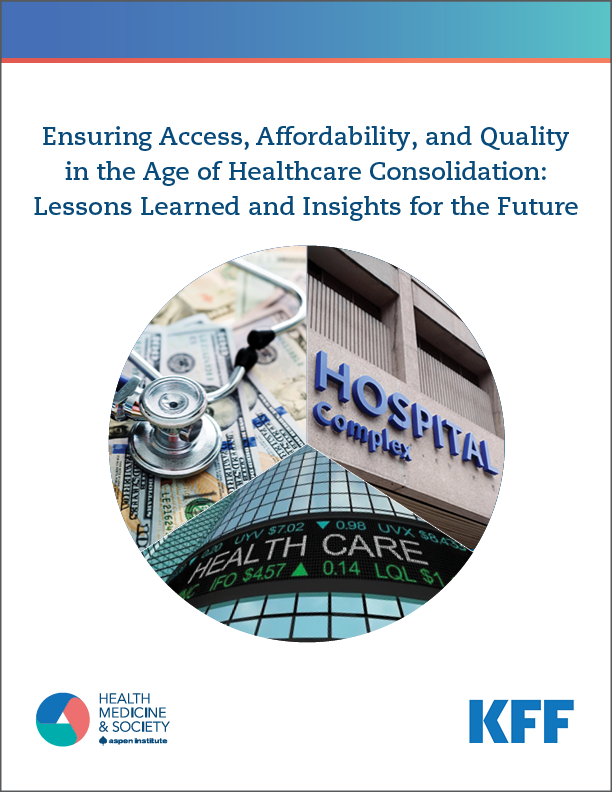
Report: Ensuring Access, Affordability, and Quality in the Age of Healthcare Consolidation: Lessons Learned and Insights for the Future
Health, Medicine & Society
February 10, 2025
A new report by an expert Working Group Ensuring Access, Affordability, and Quality in the Age of Healthcare Consolidation: Lessons Learned and Insights for the Future looks at the forces driving provider consolidation, the framework in place to regulate anticompetitive practices, and opportunities to prevent the harms sometimes associated with consolidation.
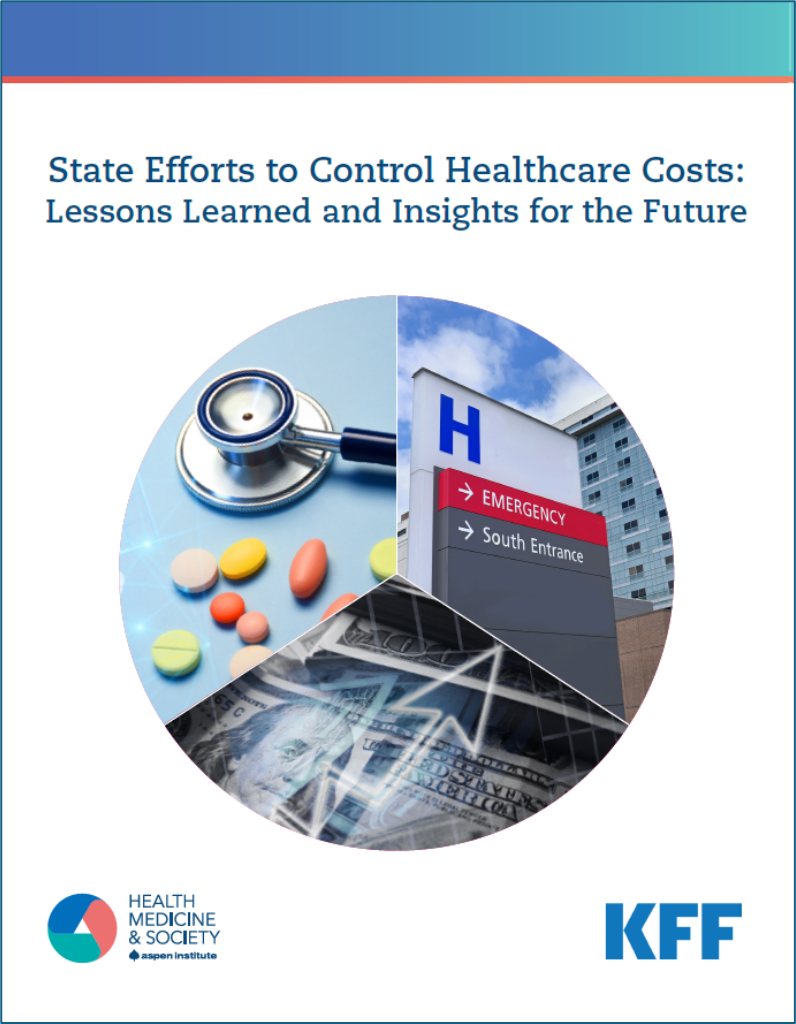
Report: State Efforts to Control Healthcare Costs: Lessons Learned and Insights for the Future
Health, Medicine & Society
May 30, 2024
States have become laboratories for testing policy and programmatic ideas to address the high costs of healthcare and keep spending under control. A new report released by an expert Working Group offers a decision–making a framework to guide them as they consider optimal approaches tailored to their needs.
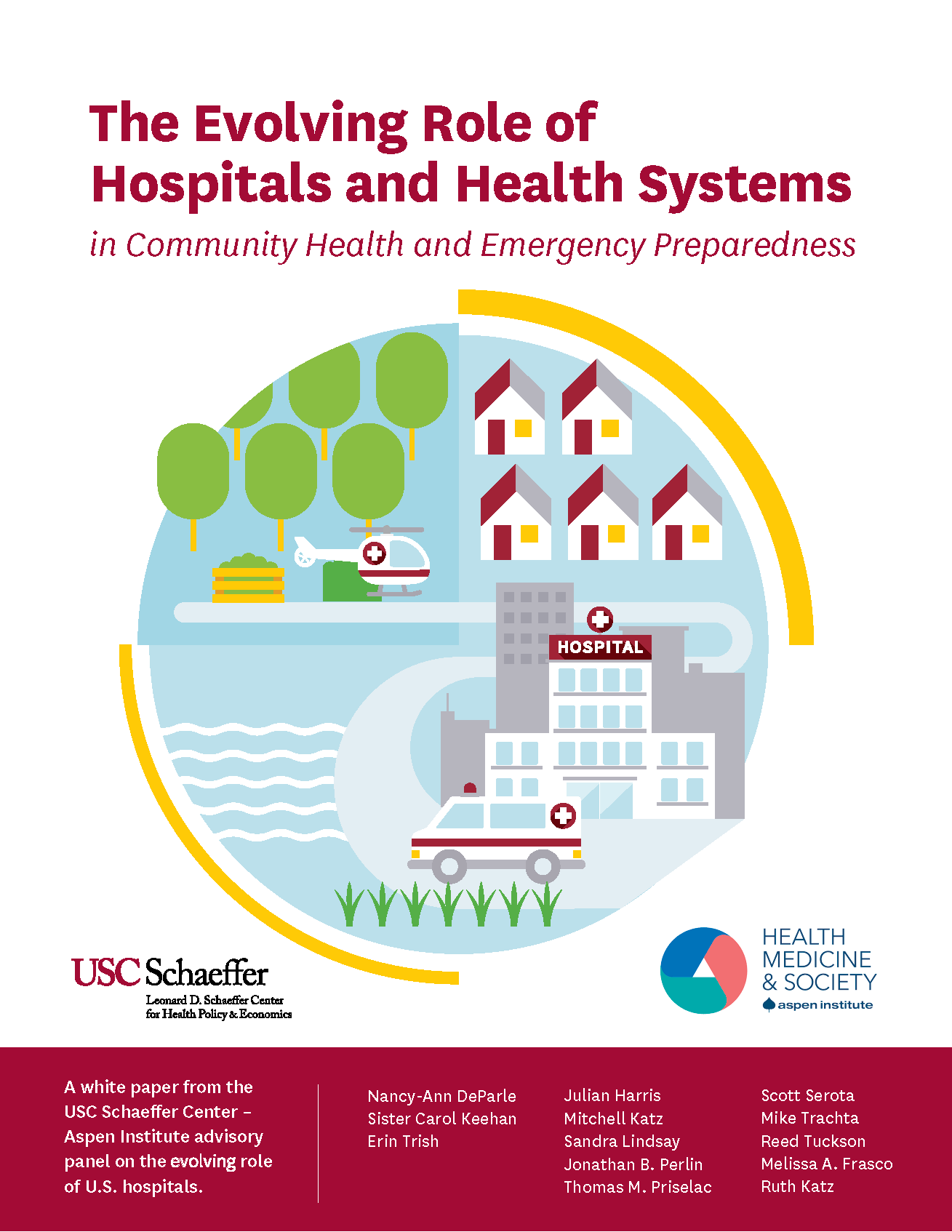
Report: The Evolving Role of Hospitals and Health Systems in Community Health and Emergency Preparedness
Health, Medicine & Society
January 24, 2024
Often under financial pressure while being asked to do more, hospitals and health systems need new approaches to ensure high-value care. This report offers recommendations for how hospitals can evolve to meet growing expectations while remaining financially viable.
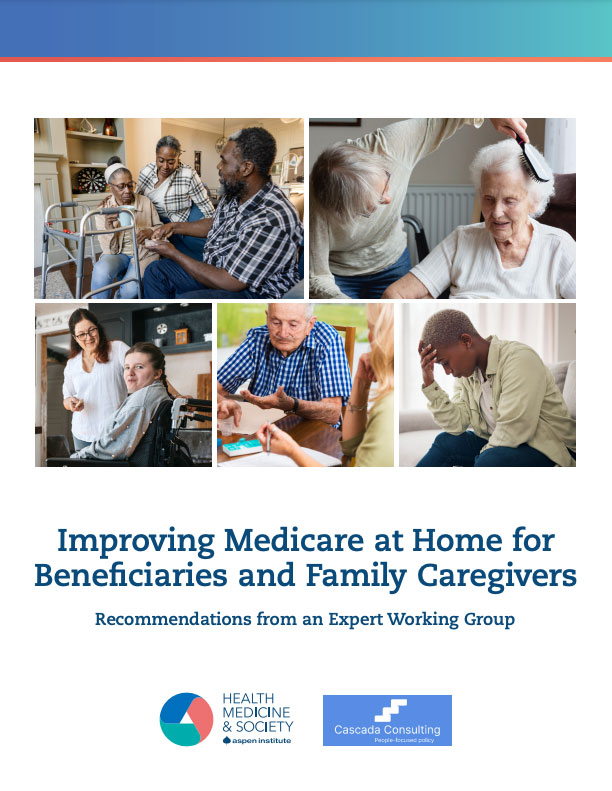
Report: Improving Medicare at Home for Beneficiaries and Family Caregivers
Health, Medicine & Society
January 22, 2024
A new report released by an expert Working Group offers a package of recommendations designed to strengthen the home-based healthcare and social service resources available to Medicare beneficiaries and their unpaid family caregivers. This report draws on commissioned research and the expertise of senior leaders in the public and private sectors who convened at the Aspen Institute to explore strategies for change.
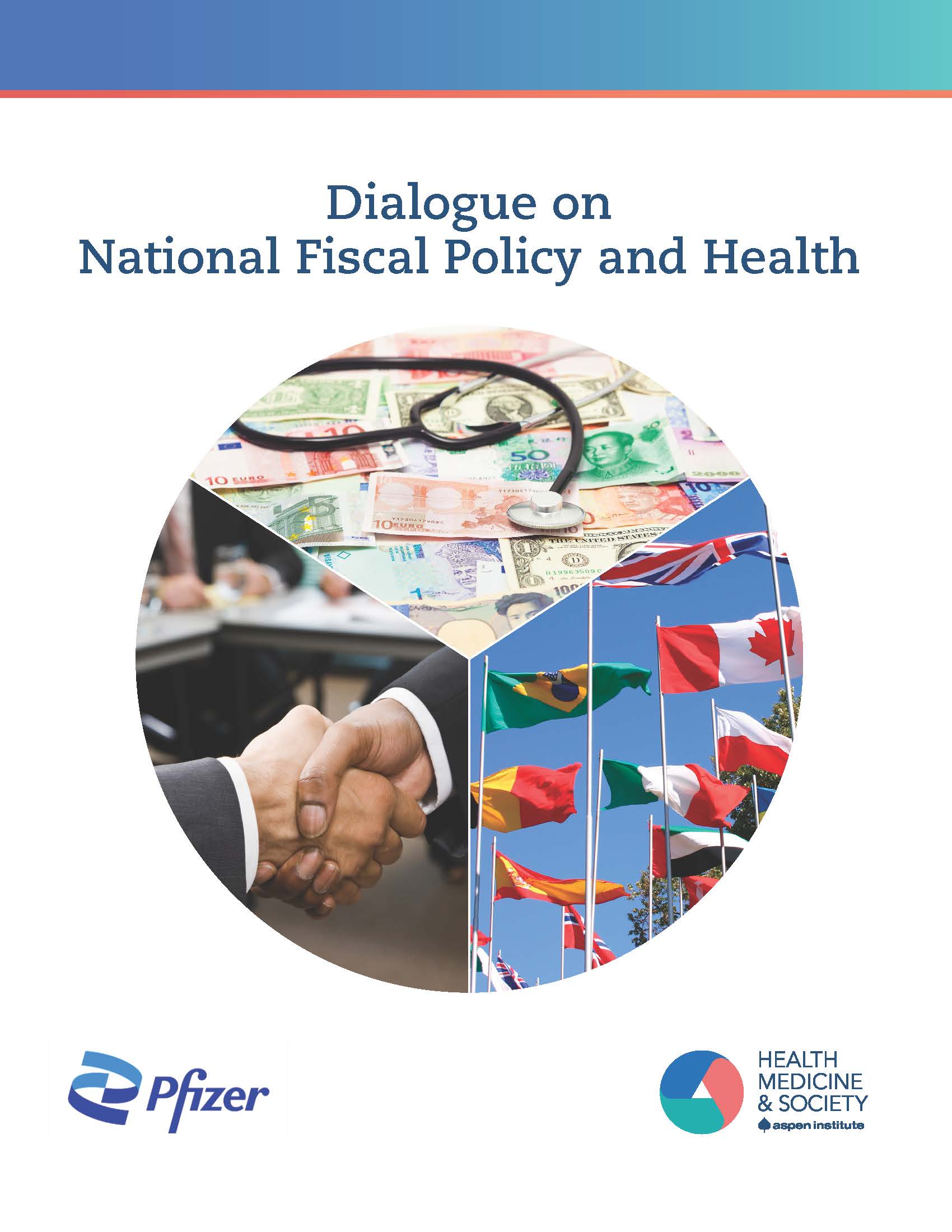
Report: Dialogue on National Fiscal Policy and Health
Health, Medicine & Society
October 4, 2023
The Health, Medicine & Society Program has released a new report reinforcing the multidimensional ties between the economic health of a nation and the health of its citizenry. The report, entitled Dialogue on National Fiscal Policy and Health, offers ten key principles that build on the recognition that economic productivity is deeply influenced by health status, primary care capacities, the presence or absence of systemic inequities, and the availability of affordable healthcare.
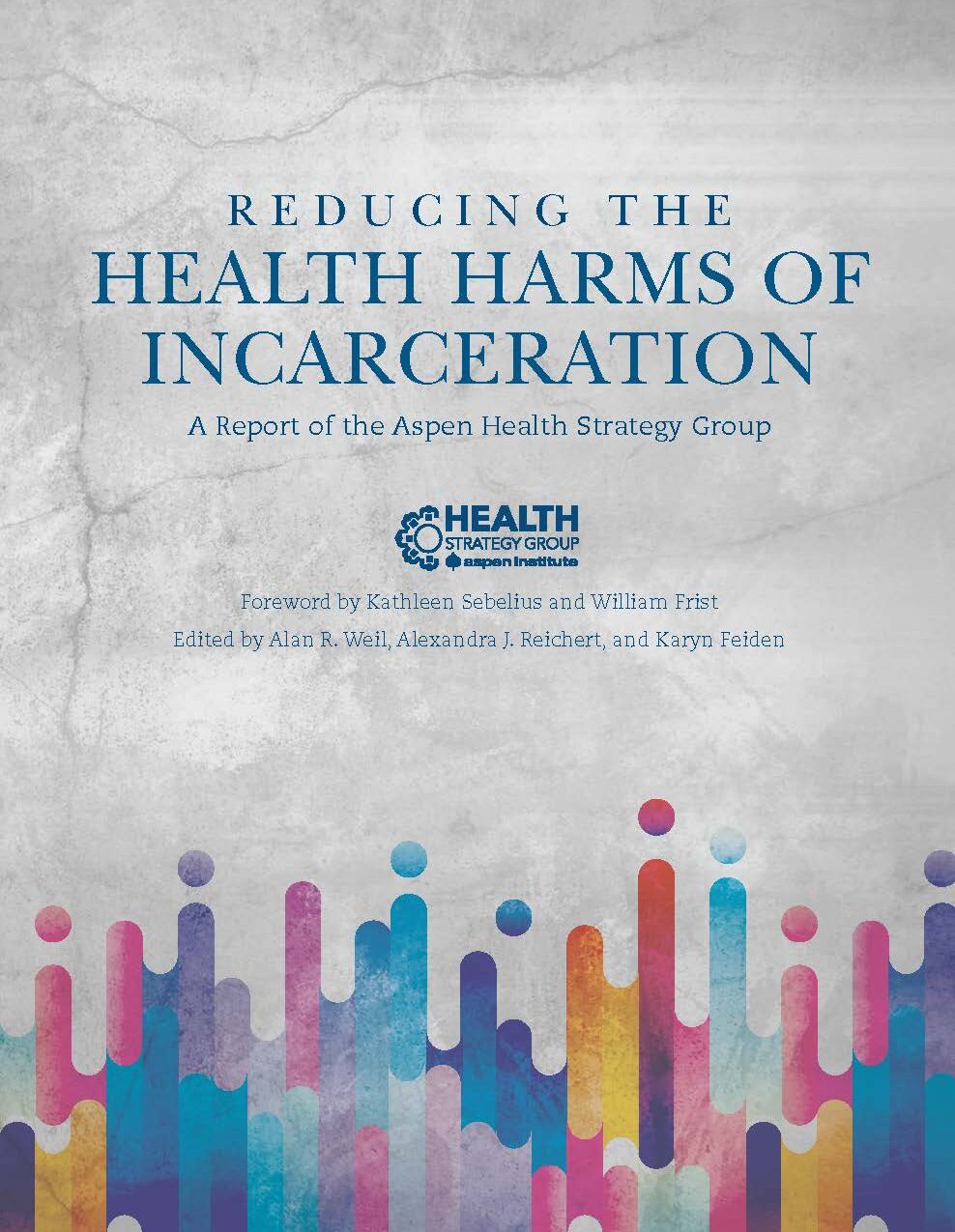
Report: Reducing the Health Harms of Incarceration
Aspen Health Strategy Group
March 2021
Although the U.S. has the highest incarceration rate in the world, neither policymakers nor the public pay much attention to the poor health of the incarcerated population and the widespread harm it causes. Action steps to reduce the harm: repeal the Medicaid exclusion for this population, prioritize health in correctional systems, upgrade quality standards of carceral health, coordinate care within and outside carceral settings, and dramatically reduce the level and consequences of incarceration.
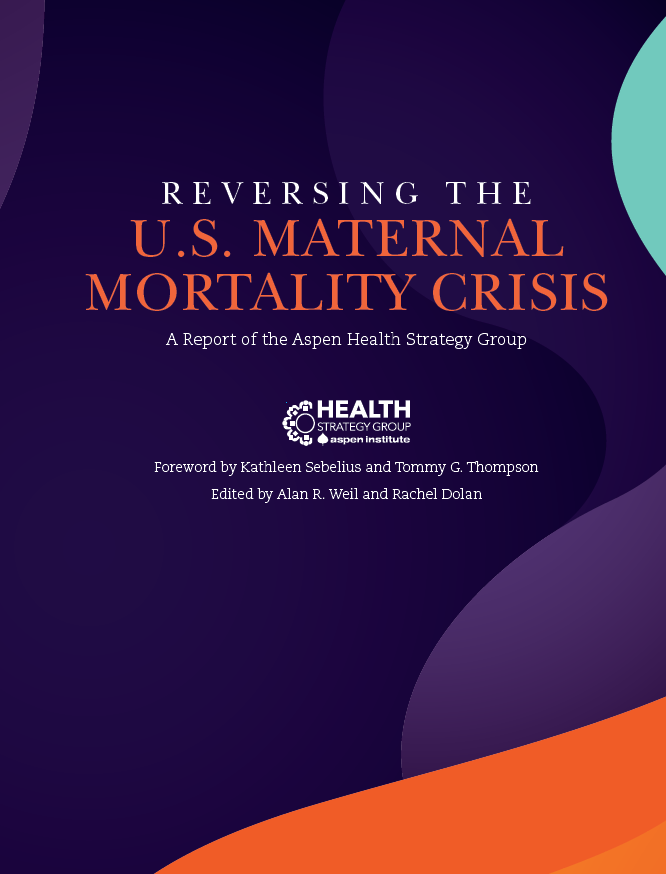
Report: Reversing the U.S. Maternal Mortality Crisis
Aspen Health Strategy Group
April 2020
Every year, 700 US women die from pregnancy or delivery complications and 50,000 more face serious health consequences. As maternal mortality rates rise steadily, Black women face much higher risks. To alter these outcomes, we need to establish ambitious national goals for improvement, develop community-based models of care, design insurance coverage aligned with women’s needs, make a broad commitment to tackling the racism that undermines maternity care, and invest in research.
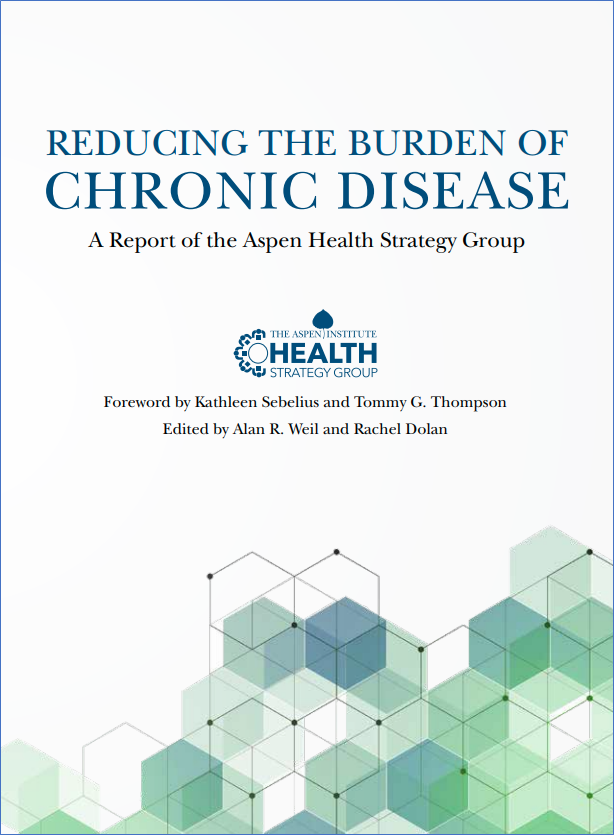
Report: Reducing the Burden of Chronic Disease
Aspen Health Strategy Group
January 2019
Chronic diseases are the leading cause of death and disability in the United States, accounting for 86% of the nation’s $2.7 trillion annual health care expenditures, yet we spend more to treat them than to prevent them. Strategies to reduce the burden include a national campaign to reduce obesity, policies that promote healthy eating, engagement across sectors and at the community level, and reorienting health system financing to reward prevention.
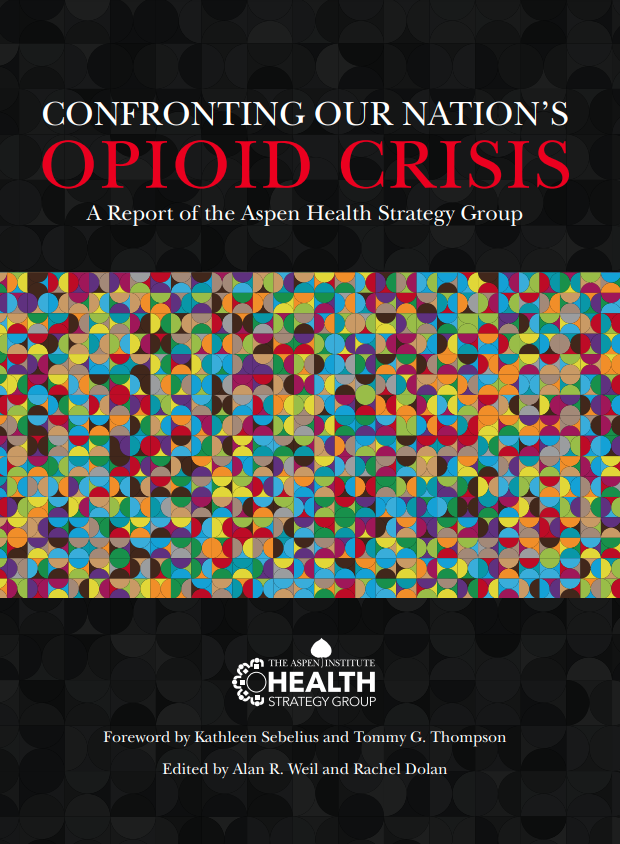
Report: Confronting our Nation’s Opioid Crisis
Aspen Health Strategy Group
December 2017
In the US alone, some 33,000 people died from opioid overdoses in 2015, a staggering two million people are abusing prescription pain relievers, and the crisis has shown no signs of abating. Confronting the epidemic requires that we reduce overprescribing; reorient policy to treat addiction as a medical condition, not a crime; distribute lifesaving naloxone more broadly; guarantee access to treatment, and invest in research.
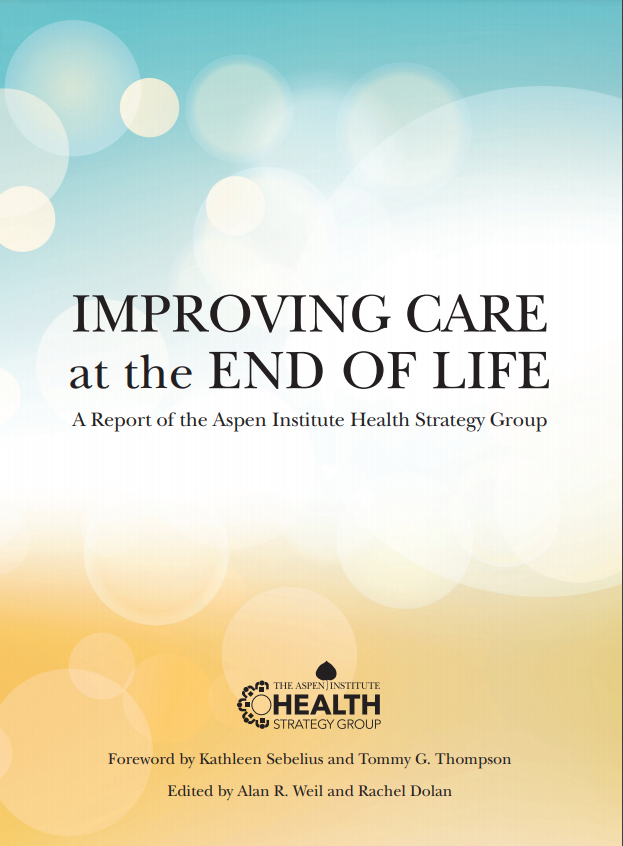
Report: Improving Care at the End of Life
Aspen Health Strategy Group
December 2016
Care toward the end of life reflects the best and worst of American health care: amazing medical advances delivered by dedicated clinicians, but often provided in the context of a fragmented health system, with its attendant high costs and poor coordination and communication among clinicians, patients, and families. New approaches are needed to honor patient preferences and meet their medical, social, and spiritual needs.
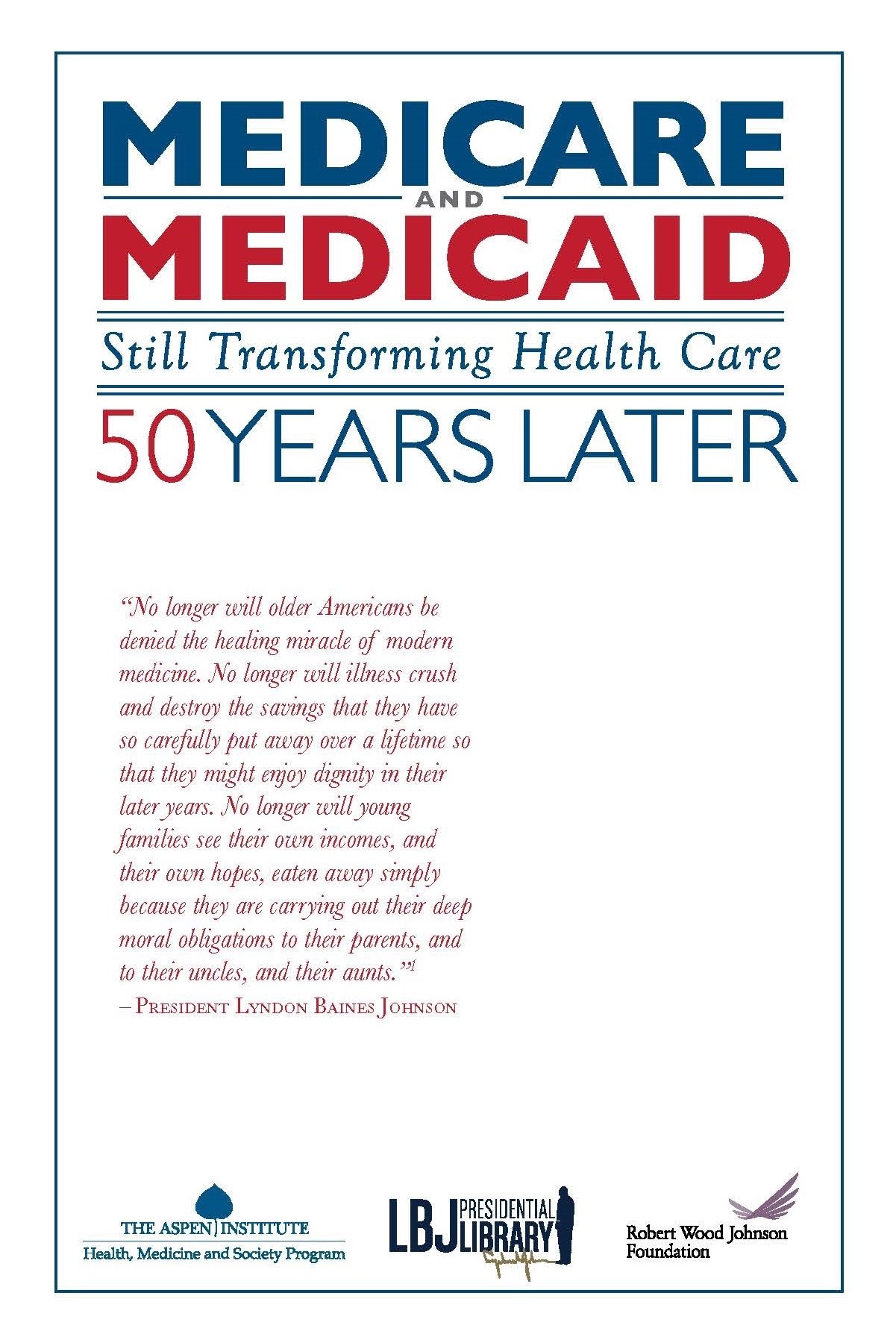
Report: Medicare and Medicaid: Still Transforming Health Care, 50 Years Later
Health, Medicine & Society
April 2015
Prepared for the 50th anniversary of Medicare and Medicaid, this report highlights the growth, evolution, and accomplishments of two federal programs that together provide health insurance coverage to some 110 million Americans. It also recognizes the determination of President Lyndon B. Johnson, under whose administrations these programs were created.



